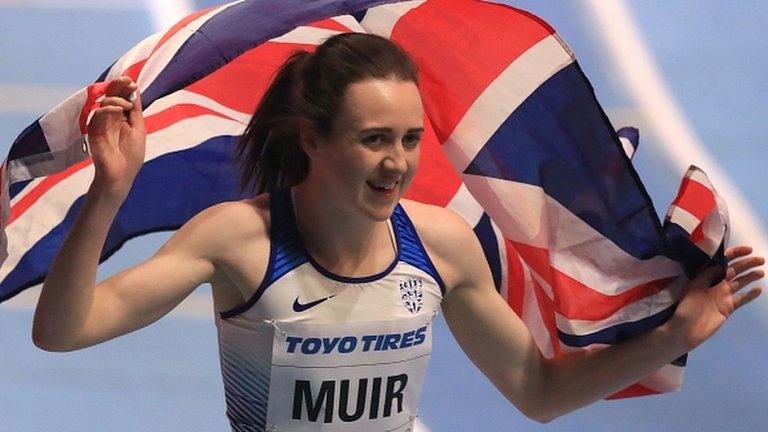British trials: Darren Campbell and Goldie Sayers criticise British Athletics
- Published
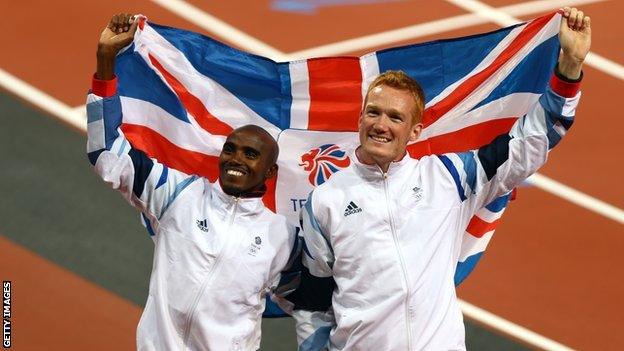
Mo Farah (left) was given special permission to miss the trials, while Greg Rutherford (right) is injured
Former Olympic champion Darren Campbell says British Athletics is "killing the sport".
Many high-profile athletes missed the weekend's British trials, which formed part of the selection process for August's World Championships in London.
Campbell told the BBC: "It felt like an Under-20s British Championships rather than a World Championships trials."
British Athletics defended the event, saying attendance was up on the previous year, and forcing athletes to compete when they were recovering from injury would be "irresponsible".
It added that more than a million tickets have been bought to watch live athletics in the UK this summer, and said provision was made for athletes to park at the trials, after Campbell had claimed they had had to pay.
LISTEN: You're not thinking about volunteers, fans, even athletes - Campbell
British former javelin thrower Goldie Sayers joined Campbell in criticising the event organisers.
The 34-year-old, now a board member of UK Athletics' athletes' commission, said the attendance was "possibly the worst I've seen in the last 10 years".
Birmingham's Alexander Stadium, which has a capacity of 12,700, was about a third full across the weekend, with British Athletics having sold more than 9,000 tickets.
Both Sayers and Campbell said the attendance was affected by the absence of some of Britain's top athletes.
Which athletes missed the trials?
The team trials event gave athletes the chance to be crowned British champion in their event, and to secure places at the World Championships.
But Olympic gold medallists Mo Farah and Greg Rutherford were among those absent, as were British record holders Laura Muir and Katarina Johnson-Thompson.
Rutherford, Muir, sprint hurdler Tiffany Porter, sprinter Delano Williams, steeplechaser Rosie Clarke and long-distance runner Jo Pavey were granted permission to miss the trials because of injury concerns.
Rutherford and Muir have automatic invites to London 2017, as long jump world champion and 1500m Diamond League champion respectively.
Sprinter Richard Kilty was given permission to miss the trials because of sickness, while long jumper Shara Proctor was absent after she was concussed in a minor car accident on Saturday.
As potential medal prospects in London, Farah and sprint hurdler Andrew Pozzi were granted special permission to miss the trials on performance grounds, the latter choosing to compete in the Paris Diamond League event on Saturday.
Heptathlete Johnson-Thompson was also cleared to focus on her preparation for London, but as Britain's top-ranked high jumper will still be considered for selection in that event.
Analysis - 'Mood of frustration bordering on anger'
BBC 5 live sports correspondent Sonja McLaughlan
Sitting in the stadium, you couldn't help but ask: 'Where is everyone?'
There's no hiding from the fact the crowd was poor and the atmosphere muted as a result.
This is supposed to be an annual highlight for track and field in Britain, but the sport needs to ask itself some tough questions as to why huge swathes of the stadium were empty.
I chatted to several former athletes and there was a mood of real frustration bordering on anger at the attendance levels, and there was a similar reaction on social media.
Greg Rutherford was one of the most outspoken on Twitter, writing:, external "The sport doesn't show the athletes as individuals. Very inaccessible and no promotion."
Athletics has been through a turbulent time, which doesn't help, and some fans prioritised tickets for the Anniversary Games and the World Championships. But it's clear the British trials need a revamp to get more people engaged with the sport and bums on seats.
What did Campbell and Sayers say?
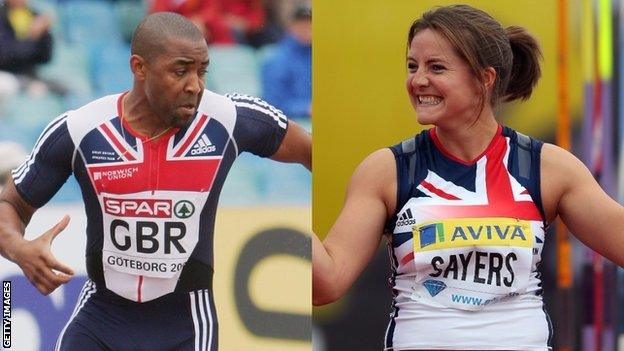
Campbell (left) and Sayers (right) both represented Great Britain at three Olympics
Olympic gold medallist Darren Campbell said on BBC Radio 5 live:
"Saturday was very, very difficult. I've not had to perform or commentate in the conditions we had on Saturday.
"The people running the sport in Britain are killing the sport. You're not thinking about the volunteers, the people that give their time to the sport, the fans, or the athletes.
"The people running the sport now don't treat the athletes right where the athletes want to give everything back to the sport."
Goldie Sayers, an 11-time British javelin champion and three-time Olympian, said on BBC Radio 5 live:
"A big factor for athletes is crowd and atmosphere, and to be honest I don't blame hurdler Andrew Pozzi for going to Paris because he's going to get a much better competition and crowd.
"We need our big names here to draw the crowd. If Mo Farah could have been persuaded to jog round the 800m that would have pulled in more people.
"The tickets are too expensive. Just get the kids in, give tickets away free. Just fill it. That could inspire kids from Birmingham schools.
"I also think the Championships should move around the country, much like the US trials.
"Make the qualification procedure three past the post. Yes, some people would miss out, but if one of those three didn't get the qualifying time, then use the discretionary process.
"You want the spectacle and competition - but we haven't got the strength and depth. That's what we need to focus on."
What did British Athletics say?
In response to the comments made by Campbell, a spokesperson for British Athletics said: "This year's attendance across the weekend was a slight increase on the previous year's Olympic trials and in line with the average for the event over the last five years, with over 9,000 people in attendance.
"During the course of this summer over a million tickets have been purchased to watch live athletics in the UK - a number unprecedented in any country for any event outside of the Olympic Games.
"As is the case each year, British Athletics made provision for athlete parking at the team trials, through the availability of parking passes. Athletes with accessibility requirements as well as throws and vaulting equipment were prioritised as well as the top-ranked athletes in each of the championship disciplines.
"Spectator parking for this event is overseen separately by Birmingham City Council and was priced at £6 when booked in advance, or £10 when purchasing on the day of event.
"Forcing any athlete to compete when they are recovering from injury, or are showing signs of injury concern, would be irresponsible and could seriously jeopardise their chances of being able to perform to the best of their abilities at the IAAF World Championships next month."
How does the selection process work?
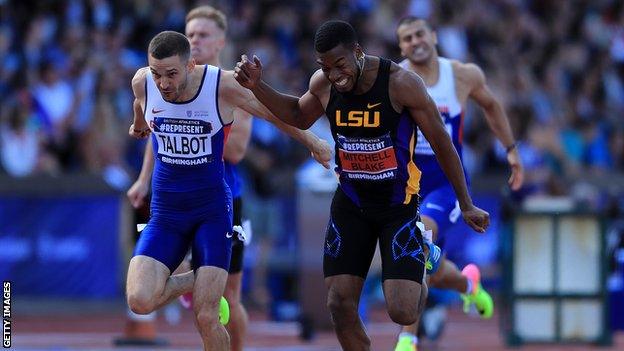
Nethaneel Mitchell-Blake won the men's 200m in a time of 20.18 seconds to gain automatic selection
Automatic selections
Athletes who finished in the top two in their event at the World Championship trials gained automatic selection, provided they had achieved at least one qualification standard in that event.
Reigning world champions and 2016 IAAF Diamond League winners will also be automatically selected.
Other selections
Athletes with the qualification standards in their event achieved by selection meeting on 10 July will be selected provided they have current form/fitness.
Where more athletes have qualified than there are places available, selections will be made based on the usual set of criteria (form/head-to-heads/season best etc.)
Athletes who achieve a qualification performance after the British Athletics deadline of 10 July, but before the end of the IAAF deadline of 00:00 BST on 23 July, may still be selected on 24 July, provided a space is available in their event(s) and provided they have current form/fitness.
Could a change of policy be on the horizon?
In 2016, the British Olympic Association (BOA), which runs Team GB, said that plans to introduce US-style Olympic trials were in their "very early stages".
In the US, the top three athletes in each event at their trials automatically gain a place on the Olympic team.
The idea would not come in until 2020 at the earliest in the UK, with some sports welcoming the chance to boost revenues.
Athletics and swimming, the two sports that usually send the most athletes to the Olympics, were said to be keen to talk about the feasibility of the proposals.
The BBC understands there is still interest from both the BOA and a number of Olympic sports to introduce these trials as soon as possible but a date has not yet been set.
Any change in policy for British Olympic qualification would not directly affect the selection process for the World Championships.
- Published2 July 2017
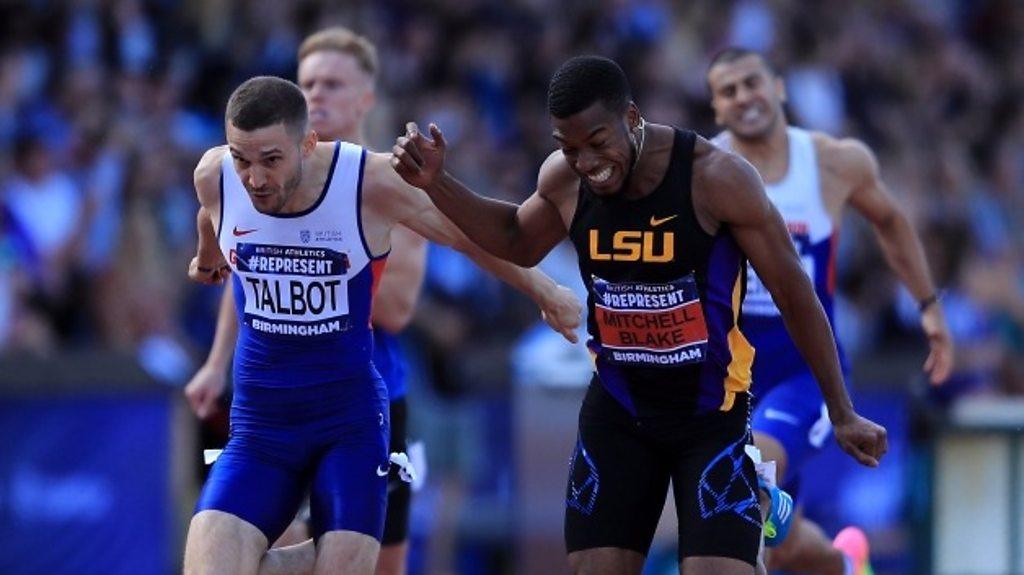
- Published2 July 2017
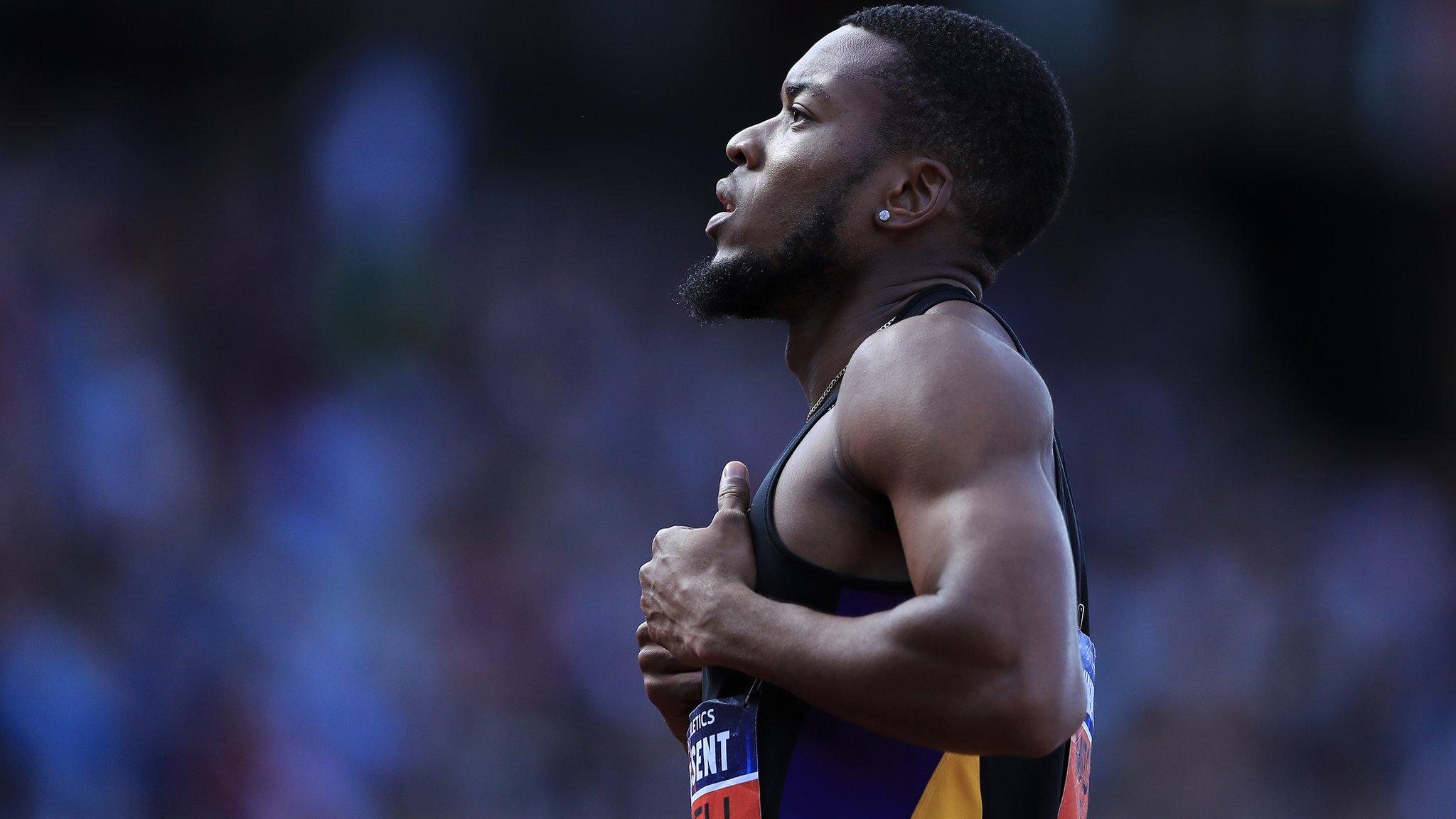
- Published23 March 2016
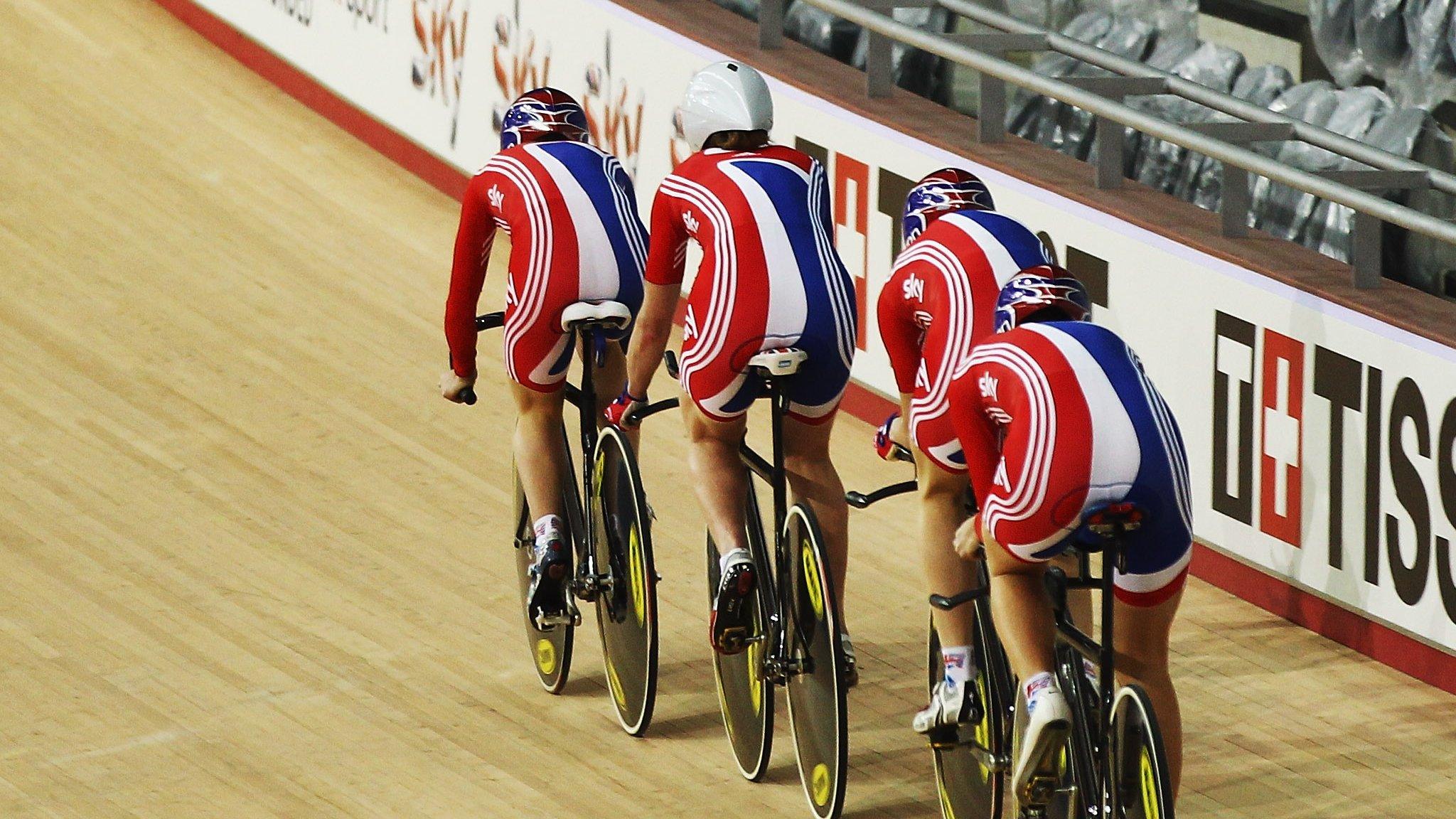
- Published3 March 2018
